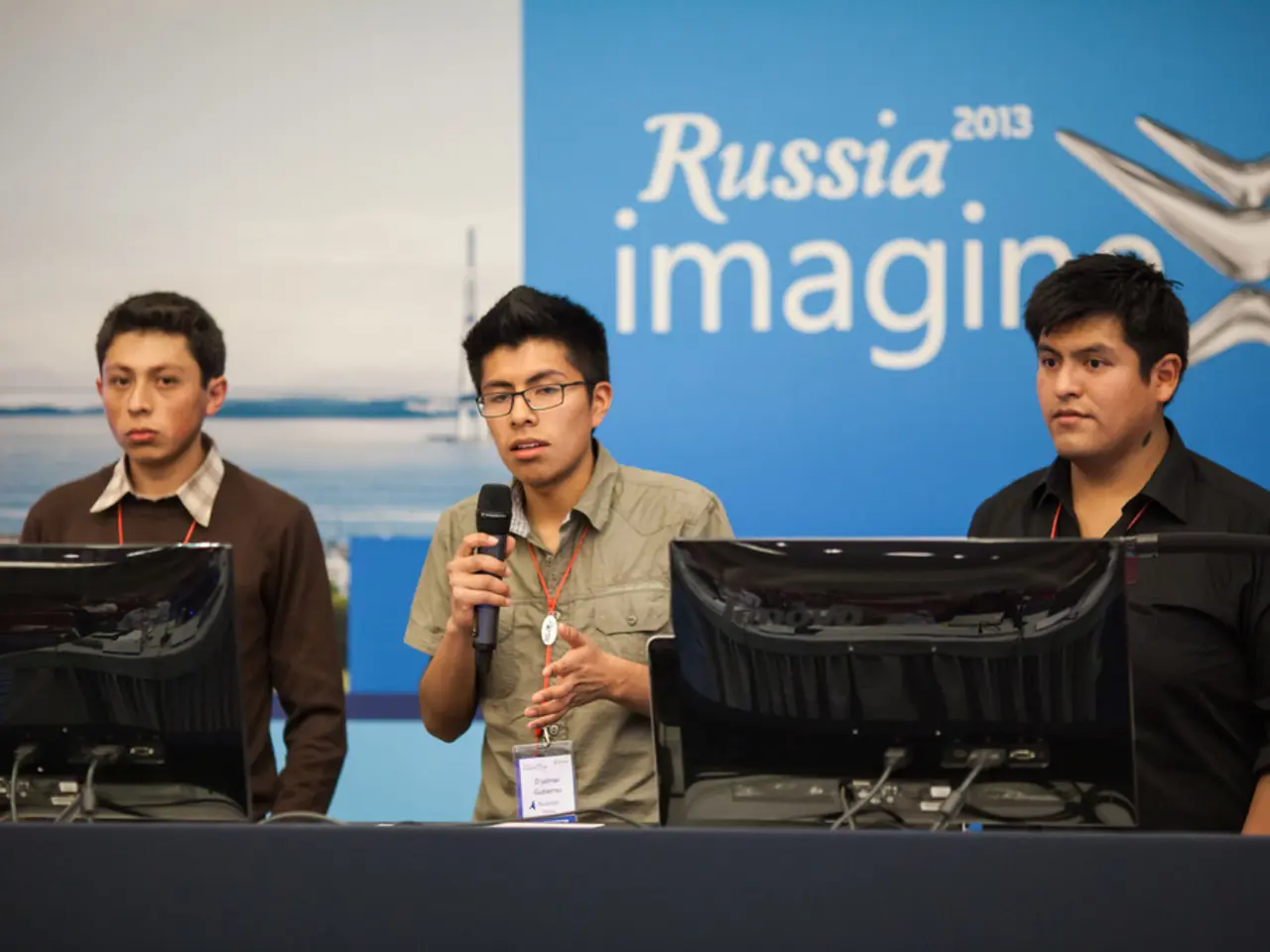SAP to persist in workforce reductions yet will also foster employment opportunities in expanding sectors
SAP, Europe's largest software manufacturer based in Walldorf, Rhein-Neckar district, is undergoing a strategic shift to AI-enabled software products and consulting services. The company, which is part of the German economy's investment initiative, has initiated a series of changes aimed at achieving robust financial growth in the coming years.
In a significant restructure, SAP had around 8,000 to 10,000 job cuts at the beginning of 2024, described as a "one-off" event by CFO Dominik Asam. However, the company indicated that in future years, job eliminations might happen at a rate of 1-2% annually, with the overall headcount continuing to grow due to new hires in strategic areas.
Despite the job cuts, SAP plans to hire "several thousand" employees by the end of 2025. The hiring focus is on future-defining roles, particularly in data science, Business AI, and consulting roles that support AI-driven change management and customer implementations. Some of the hiring will also involve reskilling existing employees into new roles.
SAP is aggressively incorporating AI into its products, notably through its AI copilot called Joule, which is being integrated into the SAP S/4HANA Cloud and supply chain management applications. This aims to enhance user interaction and operational efficiency. CEO Christian Klein emphasized the importance of AI roles and agents that help customers implement AI solutions within their businesses.
The financial and strategic outlook for SAP is promising. The company targets strong cloud revenue growth for 2025, expecting a 26-28% increase relative to 2024, with cloud revenue projected around €21.6-21.9 billion. Non-IFRS operating profit is also expected to rise by 26-30%. This growth is closely tied to their AI and cloud strategy despite some recent dips in software licensing revenues.
SAP is also expanding its partner network, including consulting firms, and is entrusting some of its own business to sales partners. The company sees great potential for savings in sales and software development. Moreover, SAP aims to increase its investments in Germany by two billion euros by 2027.
However, CEO Christian Klein has criticized potential disclosure obligations for algorithms included in SAP's customer contracts, stating that they would be highly detrimental to business. He has also warned against over-regulation, stating that it could significantly impair the competitiveness of companies in Europe. Klein mentioned that there are areas for action on the European level regarding over-regulation.
In conclusion, SAP's plans for 2024 and beyond involve a combination of job cuts, hiring in key growth areas, and a strong focus on AI integration. The scale of job cuts seen recently is not expected to recur at that level, with emphasis now on growth in AI-related capabilities. The company is balancing its workforce reductions with targeted hiring to support AI and cloud growth, reflecting a strategic shift toward AI-enabled software products and consulting services while aiming to achieve robust financial growth in the coming years.
- SAP's strategic shift towards AI-enabled software products and consulting services is evident in their plans to hire "several thousand" employees by the end of 2025, focusing on future-defining roles in data science, Business AI, and consulting roles that support AI-driven change management and customer implementations.
- As part of their aggressive incorporation of AI into its products, SAP is developing an AI copilot called Joule, which is being integrated into the SAP S/4HANA Cloud and supply chain management applications, aiming to enhance user interaction and operational efficiency.




